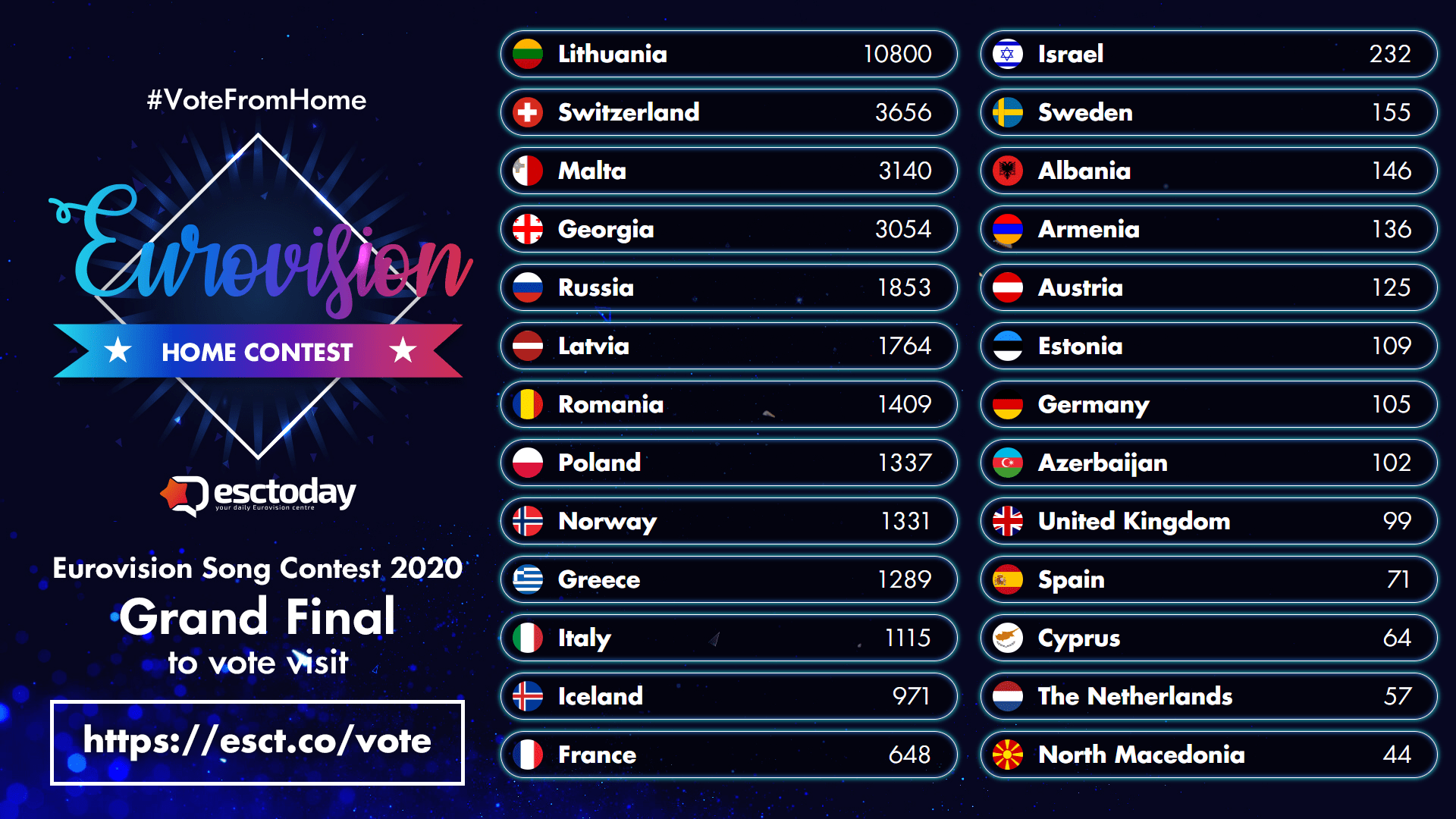How Do Eurovision Votes Determine The Winner?

Table of Contents
The Two Pillars of Eurovision Voting: Televoting and Jury Voting
The Eurovision Song Contest winner isn't determined by a single method, but rather a carefully balanced combination of two crucial voting systems: televoting and jury voting. This dual approach aims to ensure a fair and representative result, incorporating both popular opinion and expert assessment.
-
Televoting: Viewers from participating countries vote for their favorite acts via phone, SMS, or dedicated Eurovision apps. This reflects the immediate and widespread public appeal of each performance. It's a direct measure of which songs resonate most with the audience.
-
Jury Voting: Professional music industry experts from each country independently score the performances. These juries are composed of individuals with diverse musical backgrounds and experience, providing a more critical and nuanced evaluation of the artistry involved. Their input adds a layer of expert judgment to the process.
The importance of both systems cannot be overstated. The combination of public opinion (televoting) and expert assessment (jury voting) aims to prevent a single, potentially biased, viewpoint from dominating the Eurovision results. The interplay between these two systems often creates fascinating results, with sometimes surprising outcomes.
How Televoting Works in Eurovision
Televoting forms a significant part of the Eurovision voting process, reflecting the direct preferences of viewers across Europe. However, several rules and regulations govern this process to ensure fairness and prevent manipulation.
-
National Restrictions: Each country can only vote for other countries, excluding themselves. This prevents any potential bias or inflated scores from home audiences.
-
Tallying the Votes: Votes are carefully tallied to determine the top-scoring countries for each participating nation. Sophisticated systems are in place to manage the massive influx of votes during the show.
-
Vote Weighting: While the exact weighting might vary slightly from year to year, the principle remains that each vote carries equal weight, regardless of the country of origin. There isn't a weighting system based on population size.
-
Fraud Prevention: Robust measures are implemented to prevent fraud and manipulation, such as identifying and eliminating duplicate or suspicious votes.
-
Popular vs. Critical Acclaim: Televoting often highlights the songs with strong popular appeal, potentially showcasing different trends compared to the more critically-oriented jury voting. This often leads to interesting discussions after the results are revealed.
Understanding the Jury Voting Process in Eurovision
Jury voting brings a level of critical analysis to the Eurovision Song Contest, offering a counterpoint to the popular vote. The selection process and scoring criteria are carefully designed to ensure fairness and transparency.
-
Jury Selection: Jurors are chosen to represent the diversity of musical tastes within each nation. They are typically established professionals in the music industry, with varied expertise across different genres.
-
Scoring Criteria: Jurors score performances based on several criteria, including vocal performance, stage presence, artistic merit, and originality. These aspects are often weighted to ensure a holistic evaluation.
-
Conflict of Interest Prevention: Strict rules are in place to prevent conflicts of interest and bias. Jurors are vetted to avoid connections with any of the participating artists or songwriters.
-
Transparency: While the exact scores of each jury member are not always publicly revealed, the overall jury scores for each country are made available, adding a layer of transparency to the process.
-
Jury vs. Televote Comparisons: Analyzing past Eurovision events reveals interesting comparisons between jury scores and televoting results. Often, there's significant overlap, but sometimes substantial discrepancies arise, sparking interesting debates amongst fans and commentators.
Combining Televotes and Jury Votes: Calculating the Final Eurovision Score
The final Eurovision score is a balanced representation of both televoting and jury voting, with each contributing equally to the overall result.
-
Equal Weighting: Each vote type contributes 50% to the final score. This ensures that neither the public's preference nor the expert judgment overshadows the other.
-
Points Allocation: The top ten countries in both televoting and jury voting receive points, with the highest-ranking country receiving 12 points, then 10, 8, down to 1 point.
-
Example Calculation: Let’s imagine Country A receives 100 televotes and 80 jury points. These are added (180), then halved to give a final score of 90. This score is then compared to the scores for other countries to determine the final ranking.
-
Disparity Management: A significant disparity between jury scores and televoting results can spark debate and discussion, sometimes leading to controversy. However, the equal weighting is designed to mitigate the impact of any major divergence.
-
Addressing Controversies: The Eurovision voting system is not without its critics. Disagreements between jury and public opinions sometimes lead to controversies, which are often debated extensively by fans and commentators following the event.
Conclusion
The Eurovision Song Contest's voting system, a blend of televoting and jury voting, aims to represent both popular opinion and expert judgment. Understanding the intricacies of this process helps us appreciate the complexity behind crowning the Eurovision winner. The balanced approach ensures a fair and diverse reflection of musical preferences across Europe.
Call to Action: Want to delve even deeper into the intricacies of Eurovision voting and how the winner is determined? Explore past Eurovision results to see how votes have shaped the outcome! Learn more about the Eurovision voting system today!

Featured Posts
-
 Bournemouth Vs Fulham Live Stream Tv Channel And Time April 14 2025 Premier League
May 19, 2025
Bournemouth Vs Fulham Live Stream Tv Channel And Time April 14 2025 Premier League
May 19, 2025 -
 Paige Bueckers Hometown Mystery A Temporary Deletion Explained
May 19, 2025
Paige Bueckers Hometown Mystery A Temporary Deletion Explained
May 19, 2025 -
 Adios A Juan Aguilera El Tenis Espanol Llora Su Perdida
May 19, 2025
Adios A Juan Aguilera El Tenis Espanol Llora Su Perdida
May 19, 2025 -
 Legendary Musicians Final Performance Retirement At Age Age
May 19, 2025
Legendary Musicians Final Performance Retirement At Age Age
May 19, 2025 -
 Vermonts 2025 Presidential Scholars Announced Meet The Winners
May 19, 2025
Vermonts 2025 Presidential Scholars Announced Meet The Winners
May 19, 2025
